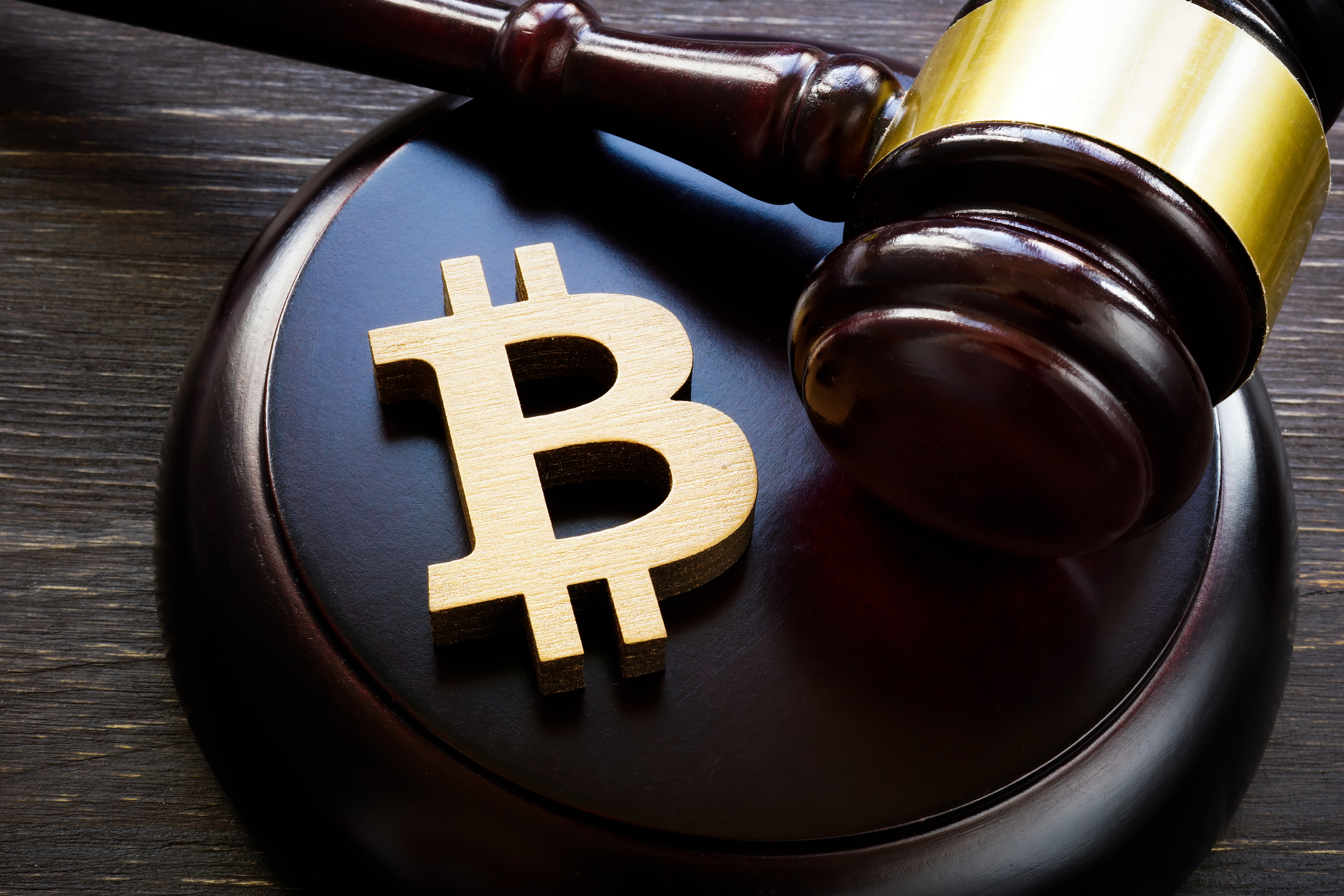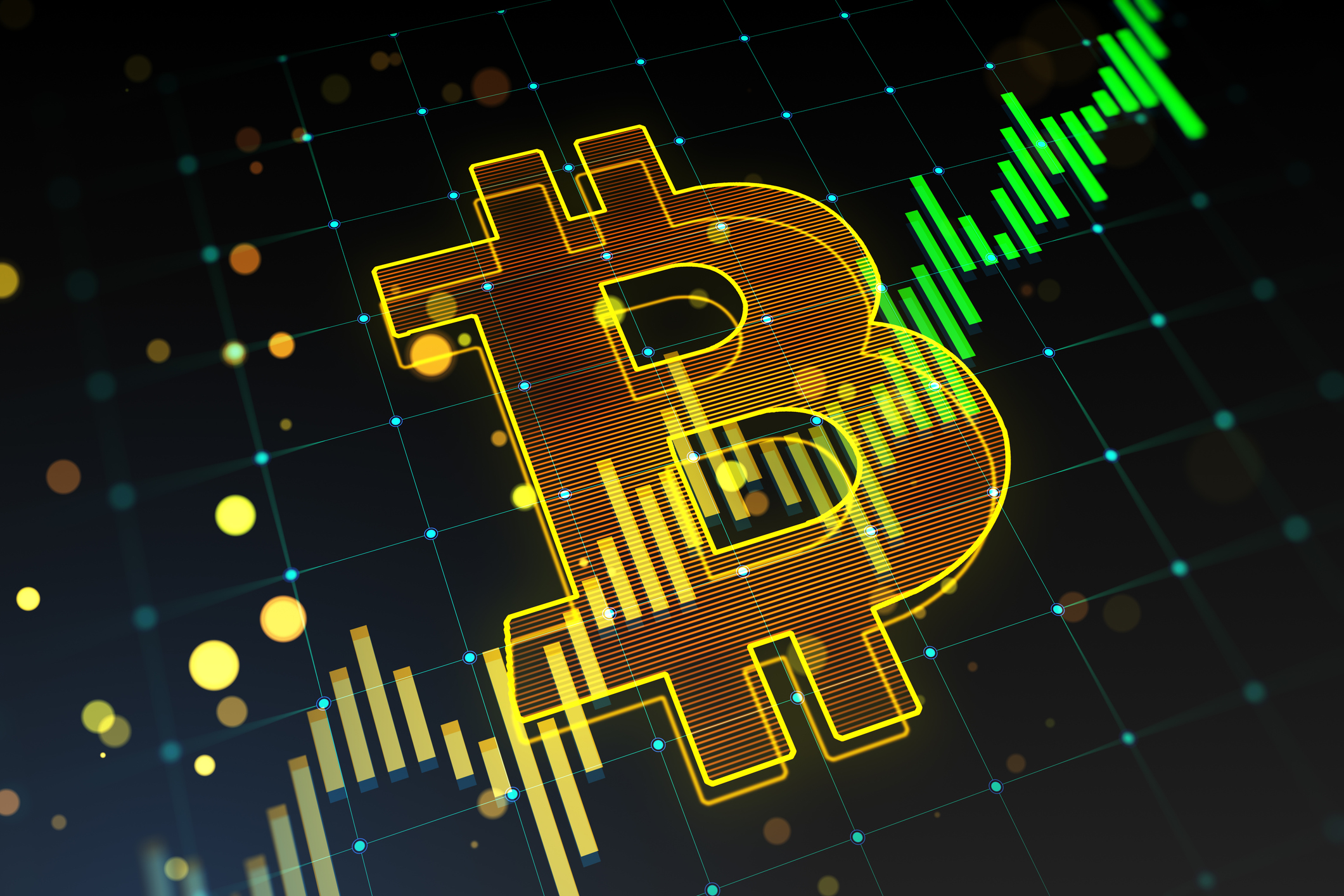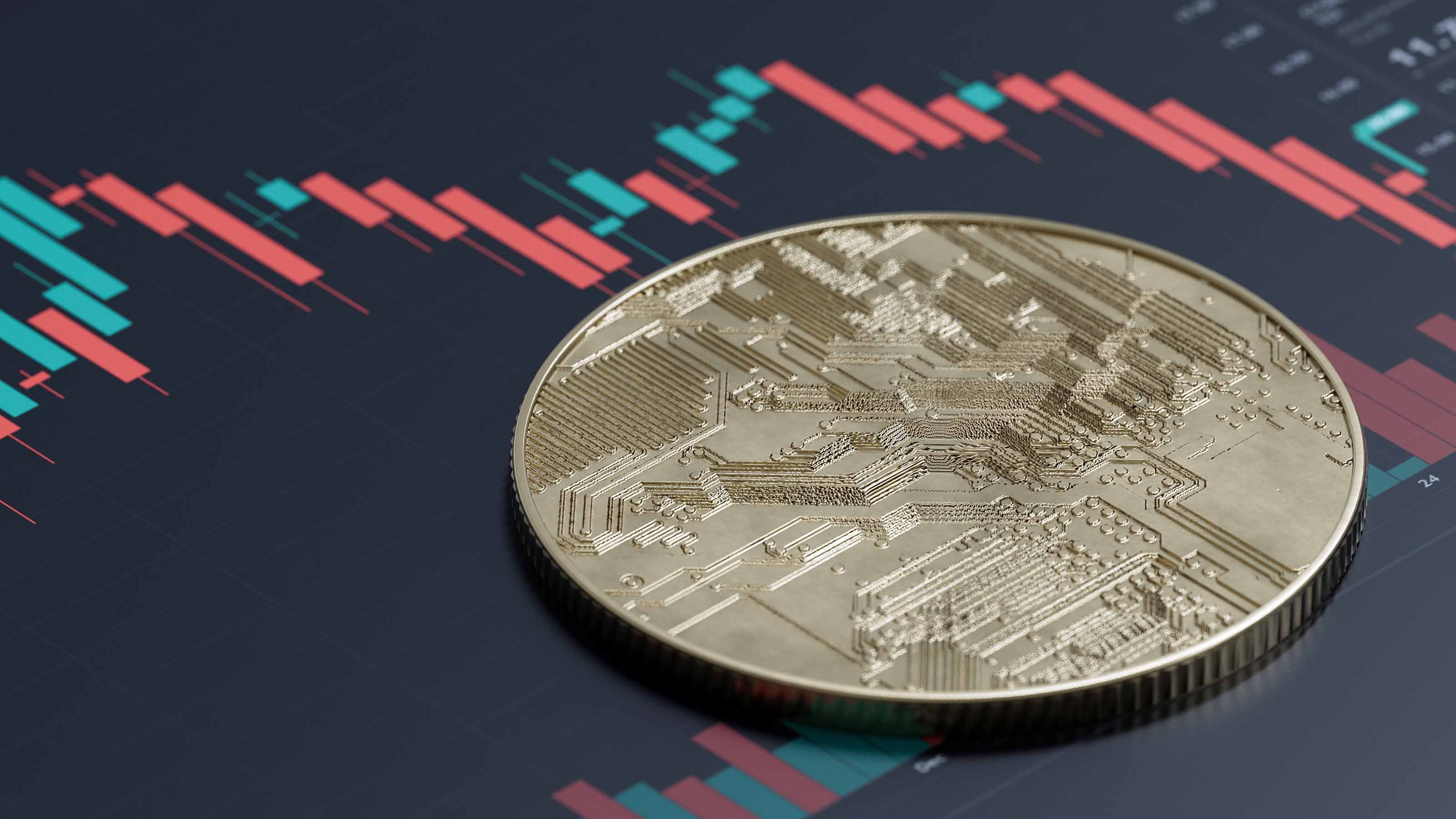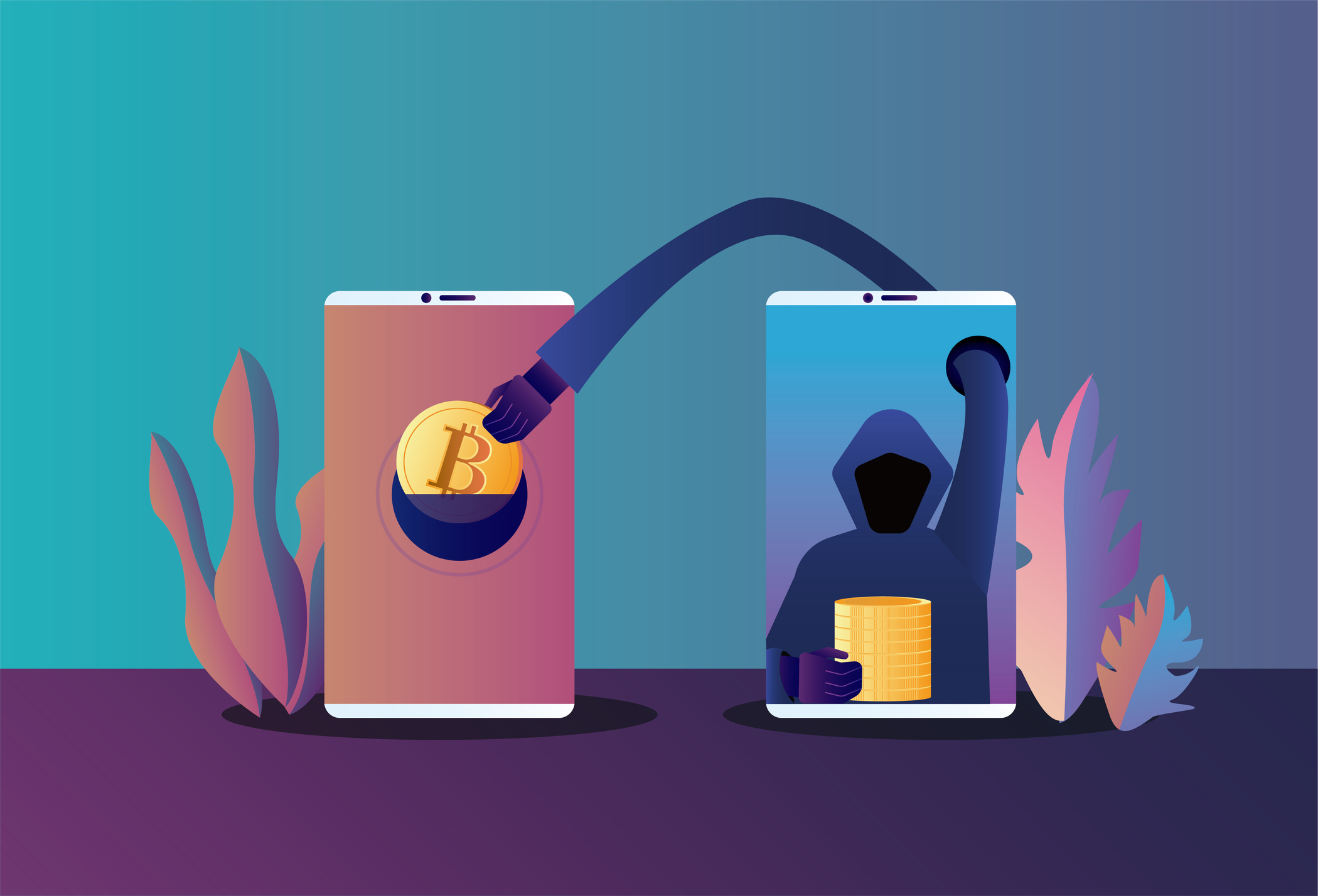The White House Touts A Digital Dollar: What Does That Mean?
A CBDC, or Central Bank Digital Currency, is a step closer in the U.S., but going digital will take years.


Profit and prosper with the best of Kiplinger's advice on investing, taxes, retirement, personal finance and much more. Delivered daily. Enter your email in the box and click Sign Me Up.
You are now subscribed
Your newsletter sign-up was successful
Want to add more newsletters?

Delivered daily
Kiplinger Today
Profit and prosper with the best of Kiplinger's advice on investing, taxes, retirement, personal finance and much more delivered daily. Smart money moves start here.

Sent five days a week
Kiplinger A Step Ahead
Get practical help to make better financial decisions in your everyday life, from spending to savings on top deals.

Delivered daily
Kiplinger Closing Bell
Get today's biggest financial and investing headlines delivered to your inbox every day the U.S. stock market is open.

Sent twice a week
Kiplinger Adviser Intel
Financial pros across the country share best practices and fresh tactics to preserve and grow your wealth.

Delivered weekly
Kiplinger Tax Tips
Trim your federal and state tax bills with practical tax-planning and tax-cutting strategies.

Sent twice a week
Kiplinger Retirement Tips
Your twice-a-week guide to planning and enjoying a financially secure and richly rewarding retirement

Sent bimonthly.
Kiplinger Adviser Angle
Insights for advisers, wealth managers and other financial professionals.

Sent twice a week
Kiplinger Investing Weekly
Your twice-a-week roundup of promising stocks, funds, companies and industries you should consider, ones you should avoid, and why.

Sent weekly for six weeks
Kiplinger Invest for Retirement
Your step-by-step six-part series on how to invest for retirement, from devising a successful strategy to exactly which investments to choose.
Disruption. It's coming for the U.S. dollar in the form of digital currency. Last week the Biden administration detailed a broad plan for adopting a central bank digital currency (CBDC) in the coming years. The Departments of Energy, Commerce, the Treasury, and other agencies weighed in on how to manage and regulate a CBDC.
The government is reacting in part to the explosive growth of digital currencies. About three out of ten U.S. adults currently invest in some form of cryptocurrency, or “crypto,” like Bitcoin or Ethereum. These digital “coins” rely on a decentralized network of computers to verify financial transactions, cutting out third parties like banks or credit cards.
The good, the bad, and the ugly of crypto
Advocates of crypto point to its affordability, efficiency, and its ability to reach consumers with little or no access to traditional banking services. With just a mobile phone or a crypto ATM, consumers can easily send and receive digital currency, even across international borders.
From just $107.88 $24.99 for Kiplinger Personal Finance
Become a smarter, better informed investor. Subscribe from just $107.88 $24.99, plus get up to 4 Special Issues

Sign up for Kiplinger’s Free Newsletters
Profit and prosper with the best of expert advice on investing, taxes, retirement, personal finance and more - straight to your e-mail.
Profit and prosper with the best of expert advice - straight to your e-mail.
On the other hand, crypto is still largely unregulated and volatile. Investors in Bitcoin, for example, saw returns of over 70% in 2021, but the currency is down almost 60% year to date. And if you send your payment to the wrong account (called a “digital wallet”) there may be no way to retrieve it. Crypto has also been used for money laundering, fraud, and to fund terrorism. Several bi-partisan bills have attempted to address some of these problems, and the industry itself has asked for regulation.
At the same time, creating a government-backed digital currency poses a raft of challenges. CBDC transactions could be tracked by the government, raising serious privacy concerns. Banks would stand to lose business and fees, which could disincentivize some lending in low-income communities. U.S. Senator Mike Lee (R-UT) introduced a bill last week opposing the creation of a CBDC. “An American CBDC would offer U.S. citizens nothing that they cannot already obtain through private financial innovation,” said Lee. “Instead, it could make their every transaction known to the Federal Reserve, while converting banks and credit unions into merely wallets rather than private lending institutions.”
Why does the government want in?
There is no guarantee that the CBDC will clear all of the political and logistical hurdles to launch a digital dollar, but there are two reasons why the administration is pushing the effort forward.
First, cryptocurrencies are no longer a curiosity or a fad; if the government does not develop a CBDC, it risks the greenback becoming obsolete in the long term. The dollar, remember, is the global reserve currency. Countries around the world hold dollars in central banks to balance interest rates and smooth international transactions. This system confers enormous financial influence and benefits to the U.S. If another country’s currency goes digital in a way that leaves the dollar in the dust, Americans will lose that financial advantage. Our ability to influence foreign governments, such as through recent sanctions on the Russian government and oligarchs, would also be impeded.
Second, the U.S. is well behind other governments in developing state-run cryptocurrencies. For example, China started work on its digital renminbi (e-CNY) in 2014, and by the Beijing Olympics in 2022 it launched a successful trial run, though it remains a prototype. The EU is developing a digital euro, slated for testing by 2023 and launching by 2026.
What happens next?
The administration will continue to hammer out policy solutions for some of the thornier issues raised by a digital dollar. There will be tests and prototypes, as in other countries, and Congress will likely get further involved. So when will the CBDC launch? According to Josh Lipsky, senior director of the Atlantic Council’s GeoEconomics Center, “the United States is far away! . . . Most likely it will be several years until anyone is using a digital dollar in normal life.”
Profit and prosper with the best of Kiplinger's advice on investing, taxes, retirement, personal finance and much more. Delivered daily. Enter your email in the box and click Sign Me Up.

Ellen writes and edits retirement stories. She joined Kiplinger in 2021 as an investment and personal finance writer, focusing on retirement, credit cards and related topics. She worked in the mutual fund industry for 15 years as a manager and sustainability analyst at Calvert Investments. She earned a master’s from U.C. Berkeley in international relations and Latin America and a B.A. from Haverford College.
-
 Nasdaq Slides 1.4% on Big Tech Questions: Stock Market Today
Nasdaq Slides 1.4% on Big Tech Questions: Stock Market TodayPalantir Technologies proves at least one publicly traded company can spend a lot of money on AI and make a lot of money on AI.
-
 Should You Do Your Own Taxes This Year or Hire a Pro?
Should You Do Your Own Taxes This Year or Hire a Pro?Taxes Doing your own taxes isn’t easy, and hiring a tax pro isn’t cheap. Here’s a guide to help you figure out whether to tackle the job on your own or hire a professional.
-
 Trump $10B IRS Lawsuit Hits an Already Chaotic 2026 Tax Season
Trump $10B IRS Lawsuit Hits an Already Chaotic 2026 Tax SeasonTax Law A new Trump lawsuit and warnings from a tax-industry watchdog point to an IRS under strain, just as millions of taxpayers begin filing their 2025 returns.
-
 Is Crypto Investing Coming to a Credit Union Near You?
Is Crypto Investing Coming to a Credit Union Near You?Credit unions are getting in on crypto investing through partnerships with third-party platforms, but the risks to investors still apply.
-
 The GENIUS, CLARITY, and Anti-CBDC Acts: What Bitcoin Investors Need to Know
The GENIUS, CLARITY, and Anti-CBDC Acts: What Bitcoin Investors Need to KnowMovement on the crypto front at the federal level has the potential to usher in substantial change. Here's what it means for your portfolio.
-
 Cryptocurrency May be Coming to Your 401(k) with Rules Change
Cryptocurrency May be Coming to Your 401(k) with Rules ChangeCrypto may be coming to a 401(k) near you. Financial experts weigh in on whether retirement savers should take the plunge.
-
 Is It Too Late to Invest in Bitcoin?
Is It Too Late to Invest in Bitcoin?Bitcoin has been volatile in recent months, but several analysts believe the cryptocurrency will resume its winning ways. Should investors get in now?
-
 Best Banks for High-Net-Worth Clients
Best Banks for High-Net-Worth Clientswealth management These banks welcome customers who keep high balances in deposit and investment accounts, showering them with fee breaks and access to financial-planning services.
-
 Silvergate Stock Sinks on Liquidation News
Silvergate Stock Sinks on Liquidation NewsSilvergate Capital stock is spiraling after the financial firm said it's shutting down operations at its crypto-friendly subsidiary.
-
 Crypto Hackers Stole a Record $3.8 Billion in 2022. Don't Be Next.
Crypto Hackers Stole a Record $3.8 Billion in 2022. Don't Be Next.Cybercriminals stole a historic amount of crypto last year — a growing trend that puts every cryptocurrency investor at risk. The biggest hacks and how to protect yourself.
-
 How Parents Can Explain to Kids How NFTs Work
How Parents Can Explain to Kids How NFTs WorkNFTs and cryptocurrencies are part of the new digital world that’s here to stay, so parents and their children should learn the ins and outs.